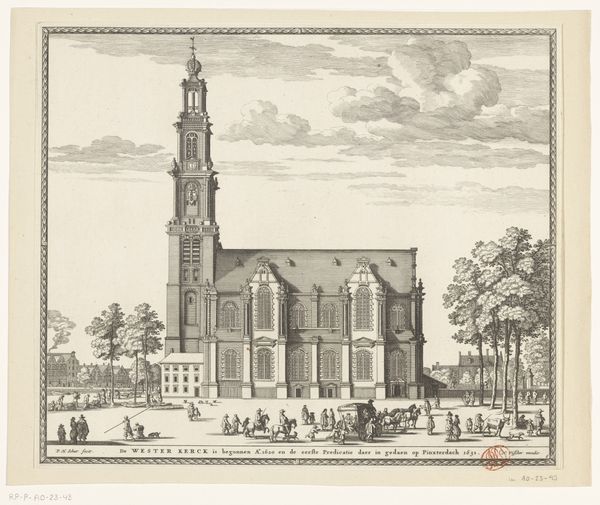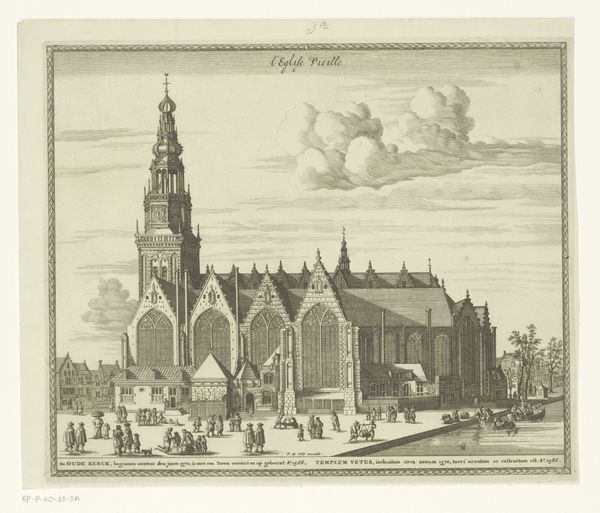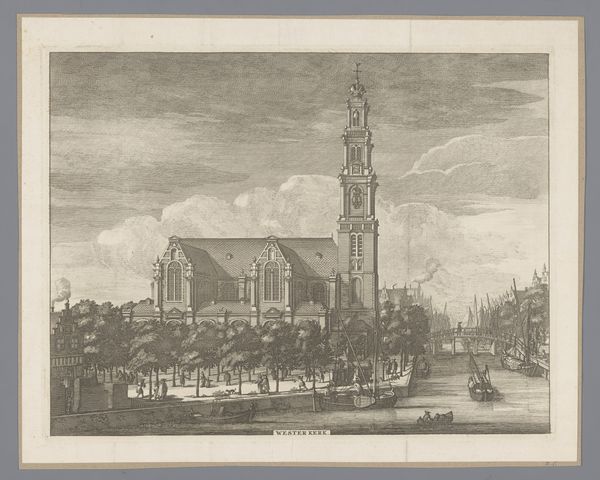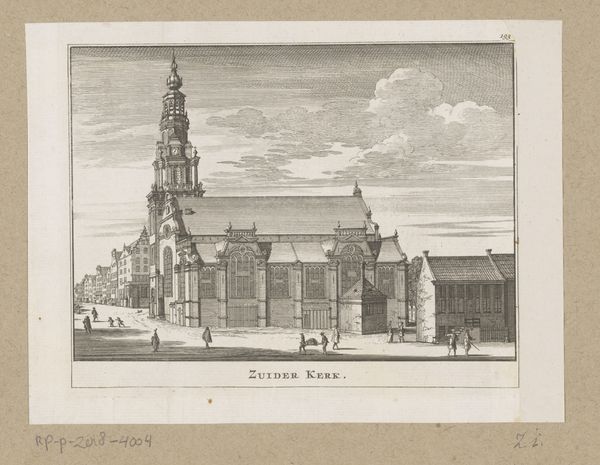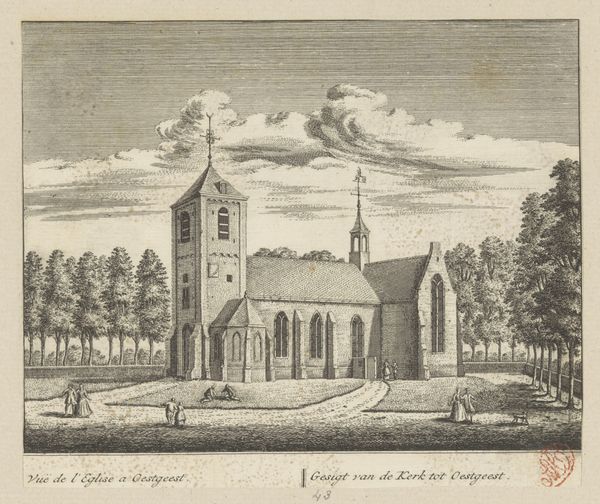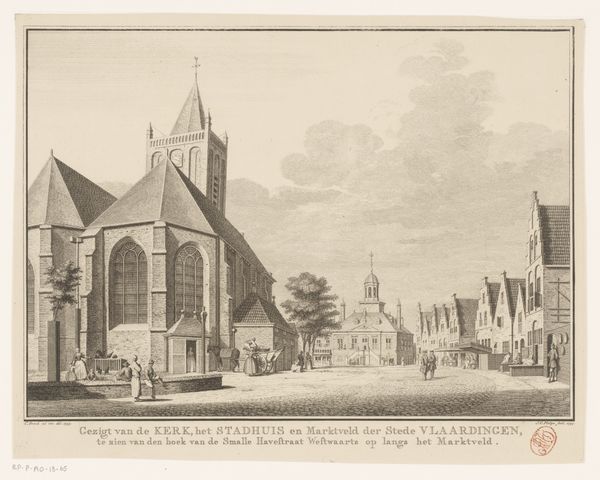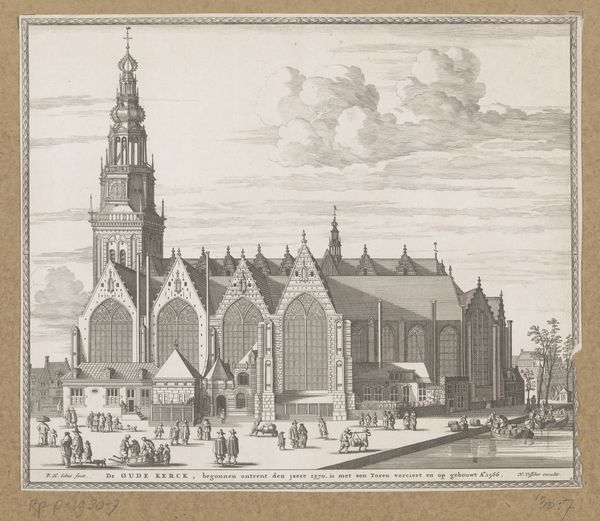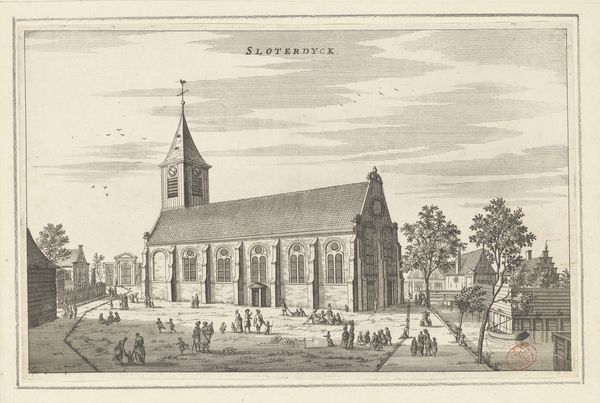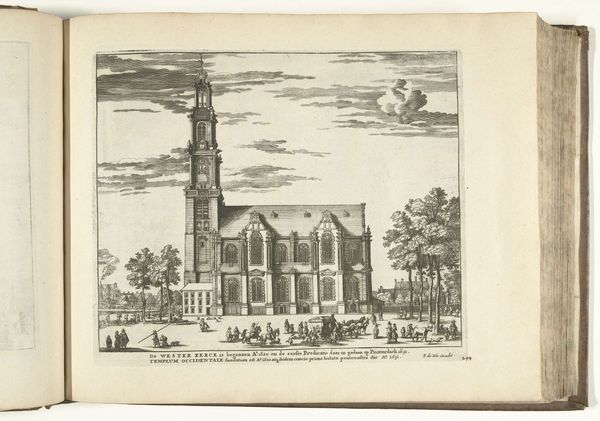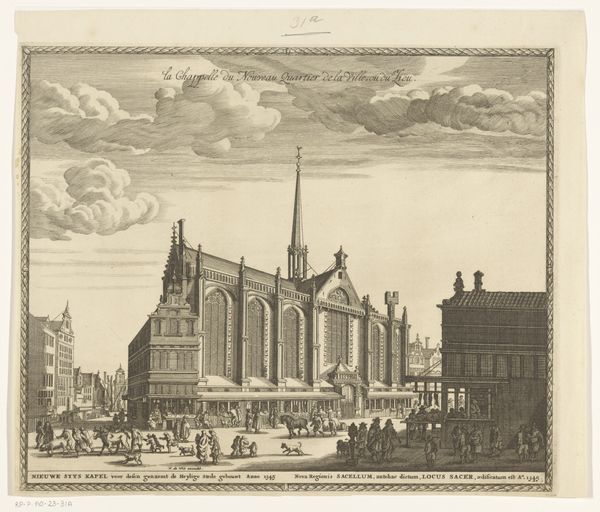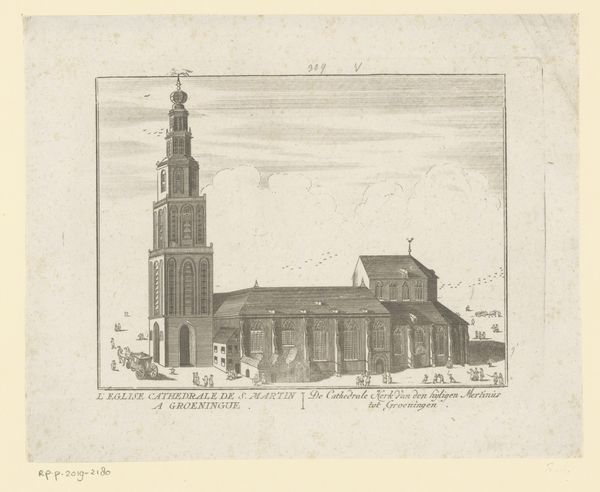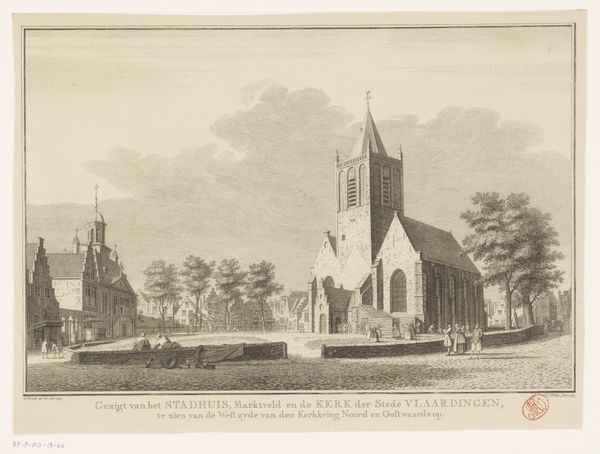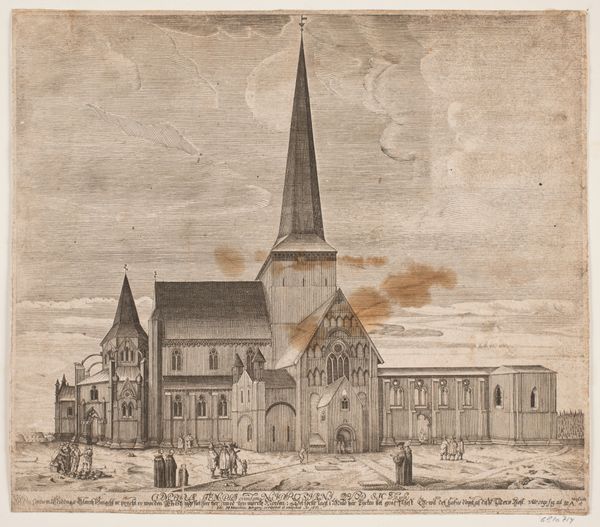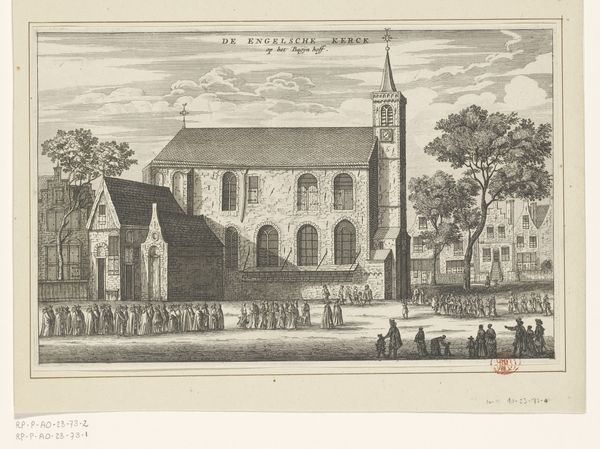
print, engraving
#
baroque
#
dutch-golden-age
# print
#
cityscape
#
engraving
Dimensions: height 265 mm, width 316 mm
Copyright: Rijks Museum: Open Domain
This anonymous print depicts the Zuiderkerk in Amsterdam. It was made using the technique of etching. This involves coating a metal plate with a waxy ground, scratching an image into the ground, and then immersing the plate in acid, which bites into the exposed metal. The resulting incised lines hold ink, allowing the image to be printed. The technique is particularly well-suited to architectural subjects like this, because it allows for fine detail and precise linework. Notice the repetitive marks creating shading, building a detailed picture of the church. Etching allowed for the relatively easy reproduction of images. In its time, this would have made it affordable, and allowed for its wide distribution. It wasn’t just a work of art, but a piece of cultural data. By considering the role of etching as a process, we understand how this image gained significance. It was through its accessibility, its inherent reproducibility.
Comments
No comments
Be the first to comment and join the conversation on the ultimate creative platform.
